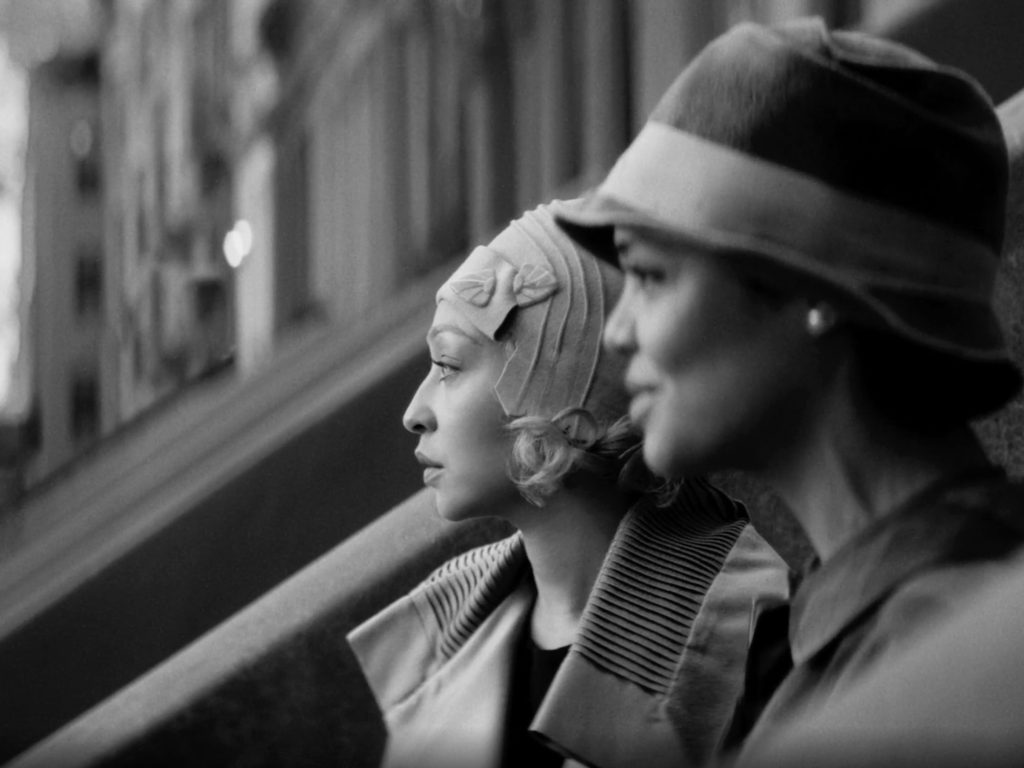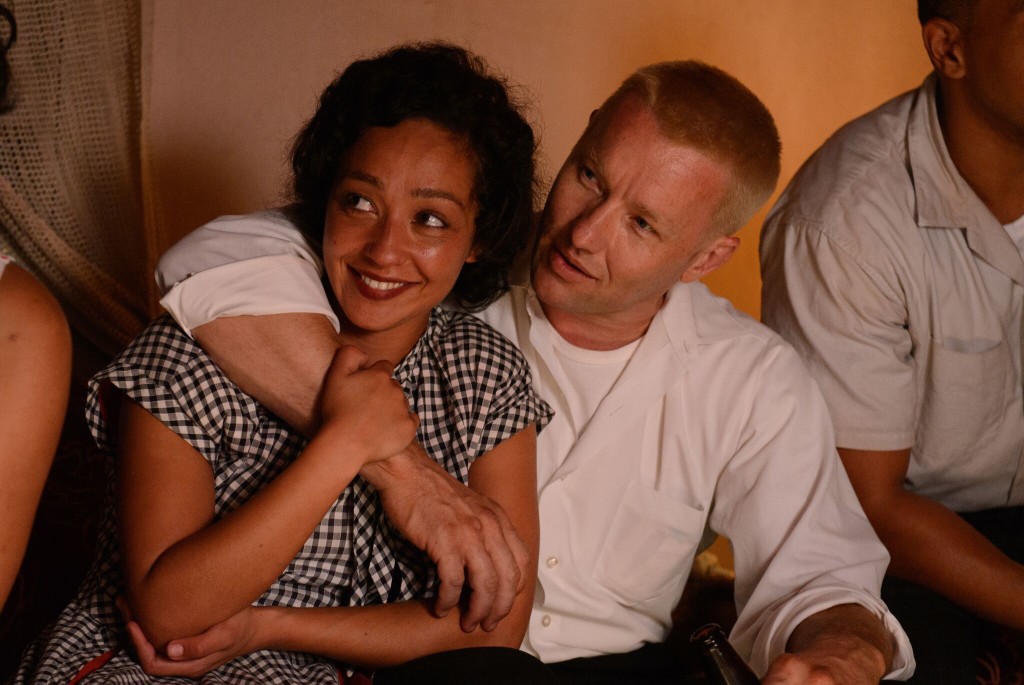
Ruth Negga and Tessa Thompson star in Rebecca Hall’s thought-provoking drama Passing, about the value of one’s identity and navigating in a racist society. It’s 1920s New York City and two light-skinned black women, both prosperous wives and mothers, happen upon each other for the first time since childhood. Irene (Tessa Thompson) is married to a doctor and has become a figure in Harlem society. Irene is shocked to find Clare (Ruth Negga) with her hair died platinum blonde and passing as Caucasian – even married to a racist white man.
For Irene, the reunion is unsettling because, ever polite, she doesn’t want to express her own disapproval of “passing”. Things get nerve-wracking for Irene when Clare’s husband (Alexander Skarsgård) shows up; from his very first word (which is overtly racist), it’s clear that things will go badly for Clare if he discovers her actual race. Presumably, he knows that Clare is not a real blonde, but he is SO racist that he even assumes that Irene must be white.
Clare on other hand, is eager to rekindle their friendship, regardless of the risks that Irene calculates. Clare NEEDS to slip a toe back into African-American culture. She is oblivious to Irene’s disgust for “passing”, and, when they first encounter in an elegant hotel tea room, Clare even assumes at first that Irene is passing.
Despite Irene’s reluctance, Clare composes herself in Irene’s family and social circle. We watch Irene as she runs her staid household (with black servants). She puts on a swinging charity benefit, attended by her black upper crust peers and by hip white New Yorkers sampling Harlem culture. One of the latter is Irene’s friend Wentworth (Bill Camp), a literary figure of standing.
Despite her charity leadership (for the Negro Welfare League), she wants to “protect” her sons from the “race issue” by keeping them sheltered and ignorant. Her husband Brian (André Holland) doesn’t agree – he has given up on improving race relations in America and wants to relocate the family in another country.
Is anyone here satisfied? Irene keeps saying she is satisfied, meaning personally, but she does her charity work for a reason. Brian is exhausted by his practice and wants to give up on the entire nation. Clare is comfortable having made a choice that she describes in the most materialistic terms, but is still yearning for what she misses in White society.
Referring to the 1929 novel, Mick LaSalle writes,
“…it’s a great advantage that the movie’s source is in the past. If this story were attempted today, it would be about a social issue. One woman would be presented as right, and the other would be wrong. There would be a crucial realization three-quarters in, and then a moral to the story spelled out before the closing credits.“
Passing is directed by British actress Rebecca Hall, whose own American mother is multiracial. As a director, Hall puts her actors in the forefront, framing them in static shots and with piano music just jazzy enough to suggest Harlem setting. Passing is photographed in black and white, with the backgrounds washed out to emphasize the characters in the foreground (and the colors of their skin).
The performances are excellent. Negga has the showier role as the charming, flamboyant and dangerously flighty Clare. Thompson’s Irene is really the more important character, and Thompson lets us see inside this woman who is so very proper that she should be boring; but Thompson’s Irene is ever thoughtful, introspective and contained – with all her turmoil roiling inside.
Veteran character actor Camp is exceptional as Wentworth, the sardonic white novelist who enjoys his forays into Harlem and values his friendship with Irene. An actor who can make the smallest role memorable, Camp has recently played Mr. Shaibel, the chess-teaching school janitor in The Queen’s Gambit and The Beach Boys’ controlling father in Love & Mercy.
Passing is still in some theaters and is now streaming on Netflix.

